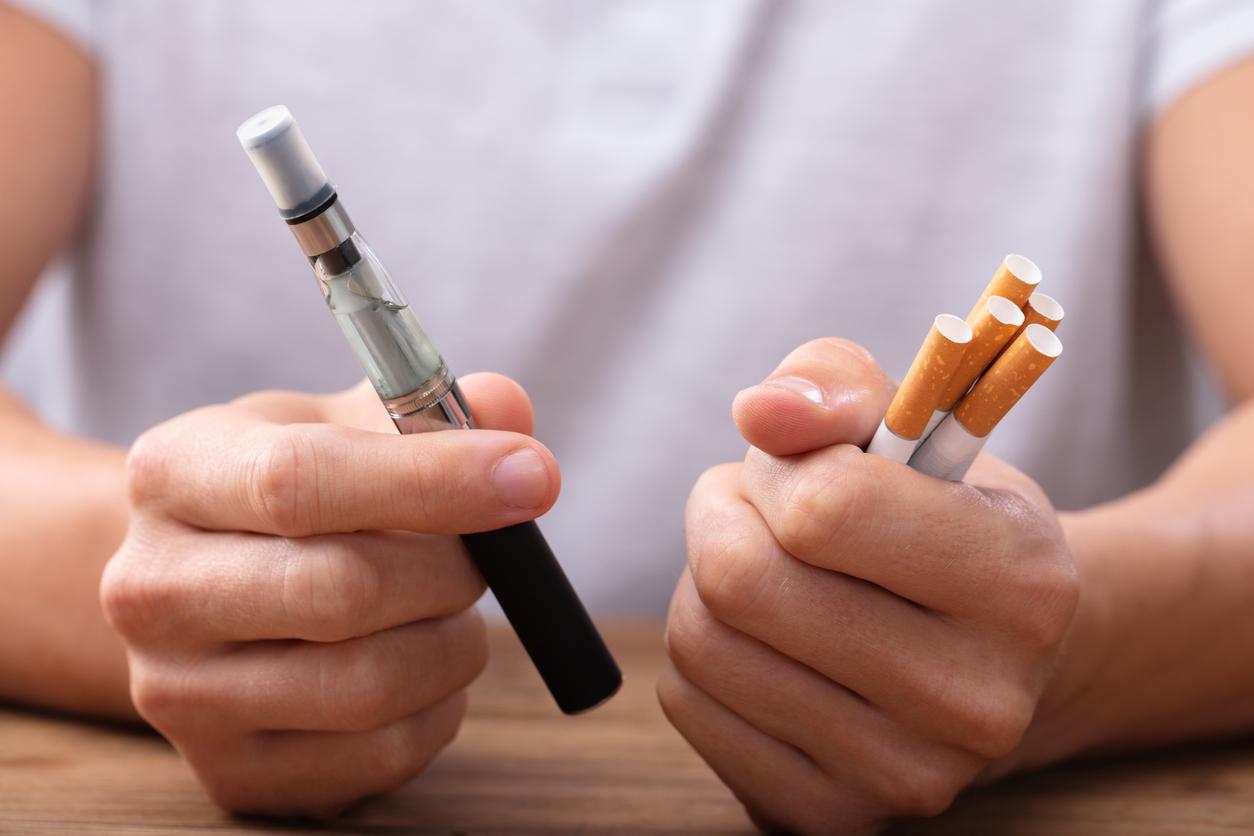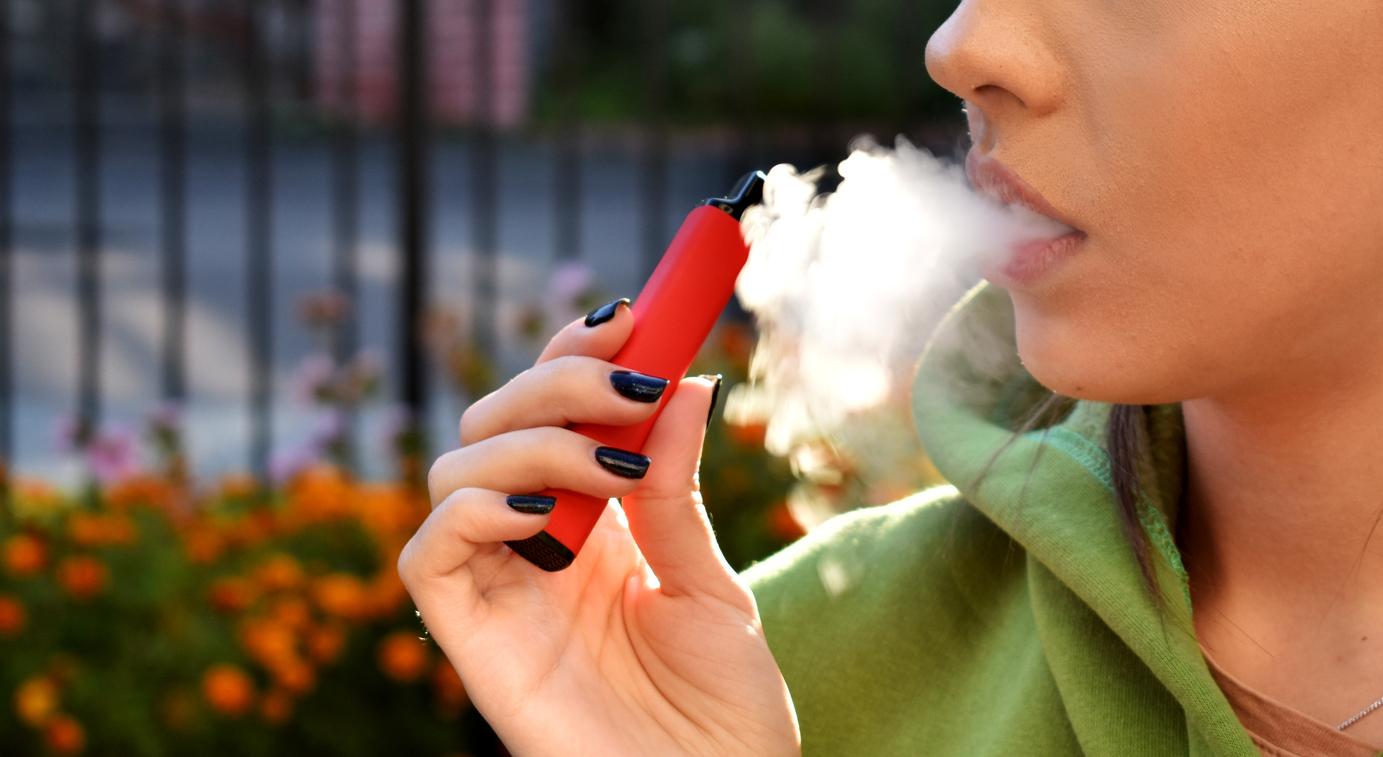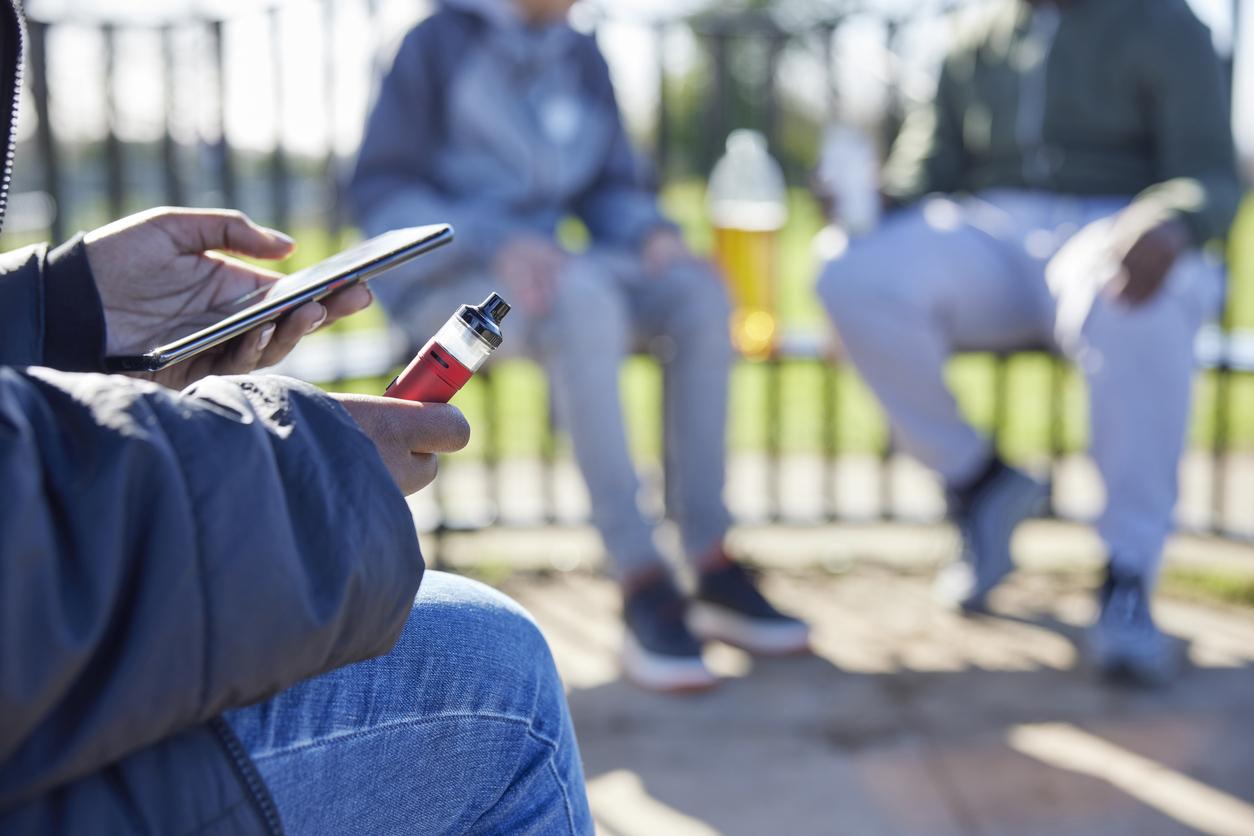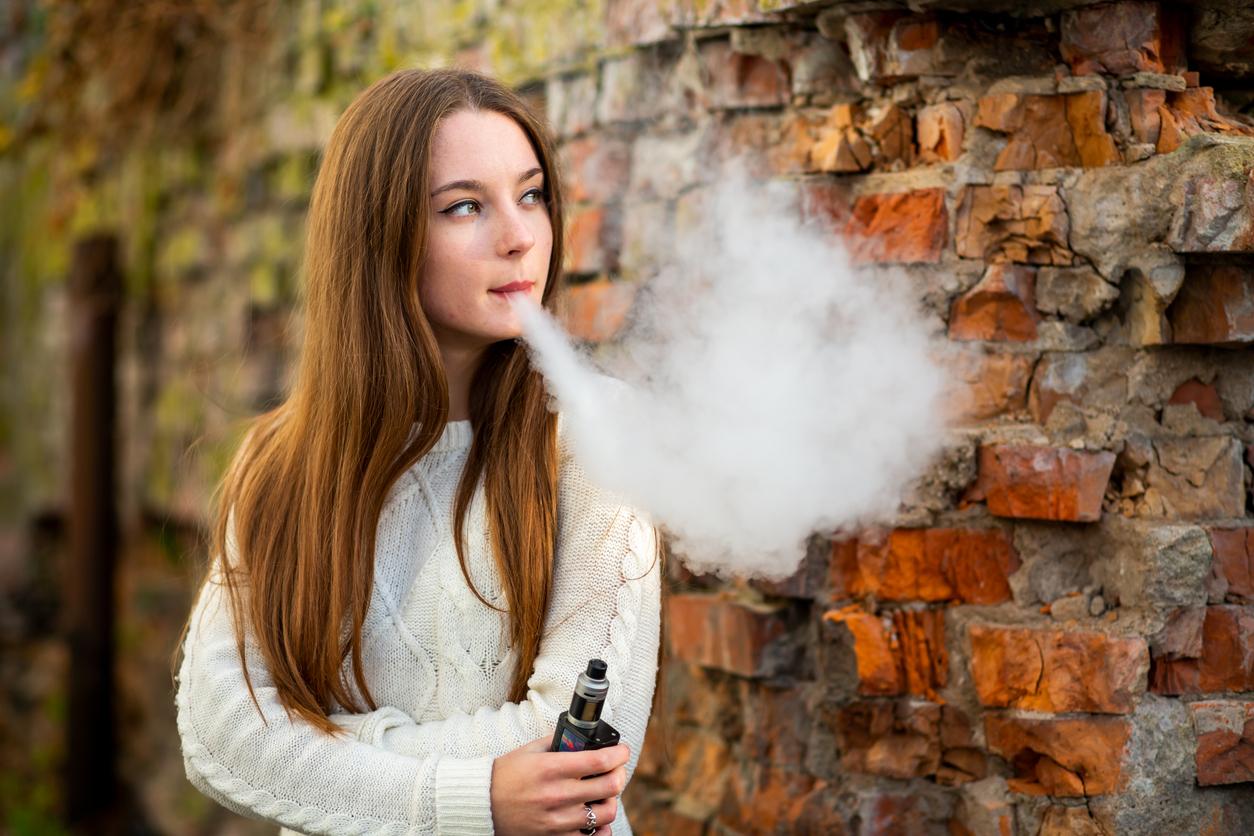While the dangers of vaping are already known, certain flavorings added to the liquid could have even more harmful effects on the lungs, according to researchers.
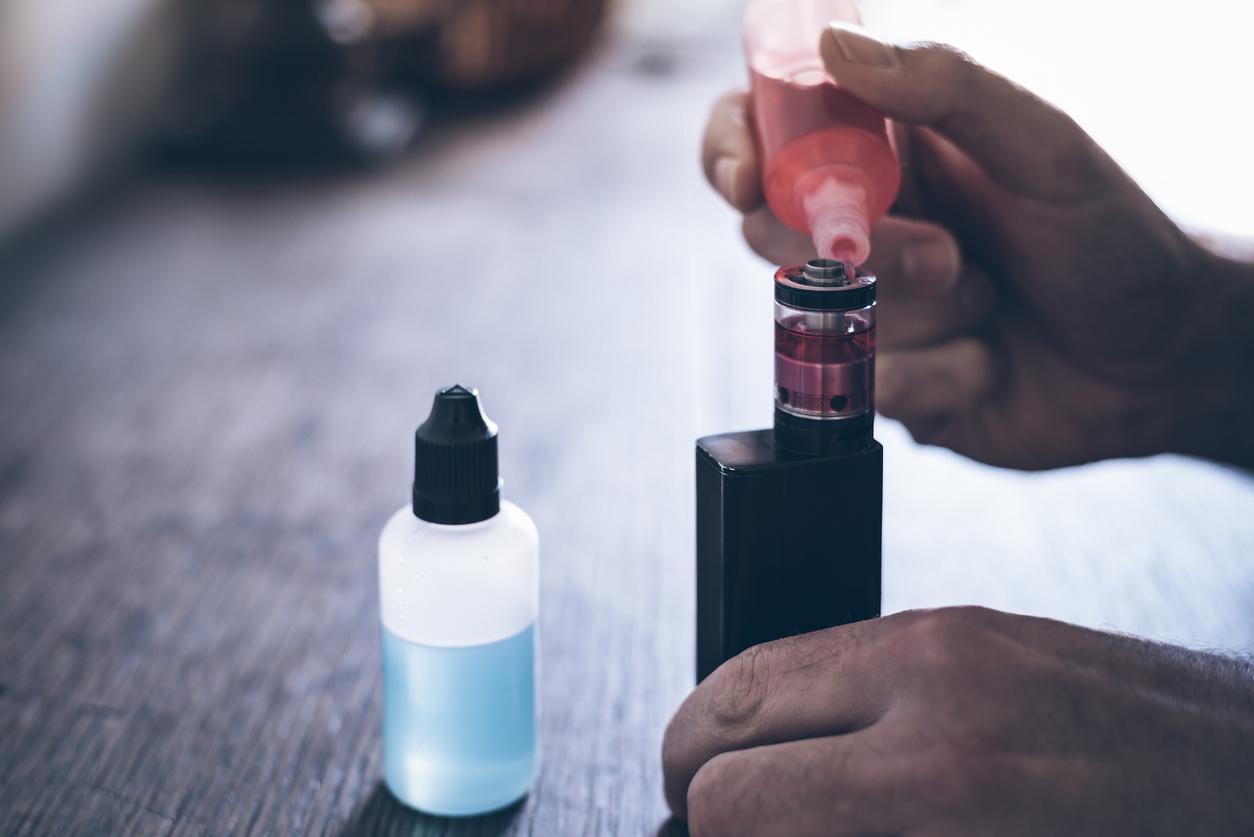
- Electronic cigarettes with red fruit flavors weaken the lungs’ natural defenses, according to a new study.
- Researchers have observed that added flavorings paralyze lung immune cells, increasing the risk of respiratory infections. An effect that has not been observed with unflavored vapes.
- While many young people are attracted to these colorful and sweet products and are increasingly vaping, researchers are calling for caution and better regulation of flavors to limit the risks.
Harmful for the heart, bad for oral health… Even without nicotine or combustion, vaping is not without risk. If the dangers of electronic cigarettes are already known, a recent study, published in the journal Proceedings of the National Academy of Sciencesprovides new evidence regarding the exacerbated effects of certain added flavors. By comparing flavored and unflavored vapes, researchers from McGill University and the University of Saskatchewan, in Canada, found that those with red fruit flavors can weaken the lungs’ natural defenses.
Aromas with harmful effects on the lungs
To reach this conclusion, scientists exposed mice to flavored e-cigarette vapors and observed their lung immune cells live. It has emerged that berry vapes paralyze the immune cells responsible for cleaning the lungs of harmful particles, making the body more vulnerable to respiratory infections. An effect that has not been observed with unflavored vapes. A study published in 2023 was in the same direction: the addition of menthol flavoring to electronic cigarette liquids seems to generate a greater number of toxic microparticles and further damage the lungs.
Although this work points to a worrying link between red fruit flavors and the risk of lung infection, additional studies are needed to identify the specific chemical compounds responsible for this effect, and to verify whether the same effects occur in humans. .

The urgency of banning flavorings, according to the WHO
While the smoking rate tends to decrease, the popularity of e-cigarettes is skyrocketing, particularly among young people. In 2022, 7.3% of 18-75 year olds reported vaping, 5.5% daily, prevalence increasing compared to 2019, according to Public Health France. The attraction to sweet and fruity aromas, perceived as harmless, largely contributes to this increase. “Products are often sold in colorful and attractive containers, targeting a young audience, which can be disastrous for our future”they warn in a press release.
Already in 2023, the World Health Organization warned: “Electronic cigarettes target children through social media and influencers, offering at least 16,000 flavors. Some of these products use cartoon characters and have an elegant design, which appeals to the younger generation.” To fight against it, the health agency recommends the establishment of a “strict regulations” on electronic cigarettes “in order to reduce their appeal and their harmfulness for the population, in particular by banning all flavors, limiting the concentration and quality of nicotine and subjecting them to taxes”.








